Welcome! I'm a British expat now living in the mountains outside Ulaanbaatar, Mongolia. We have a small tourist camp where we live year round. Perhaps I can offer some of my own experiences through 2 winters. Some of it might be useful but the climate in the UK is so different. So maybe not.
In Summer:
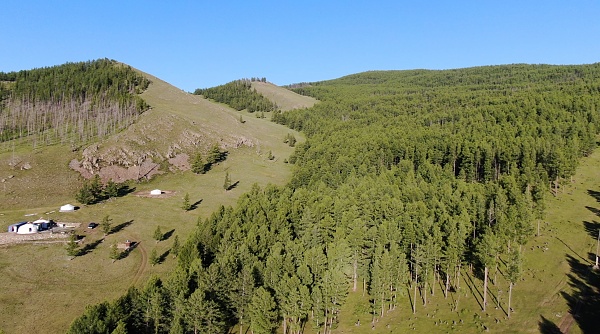
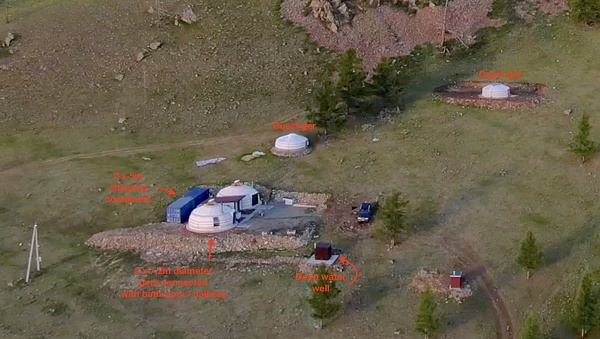
In Winter:
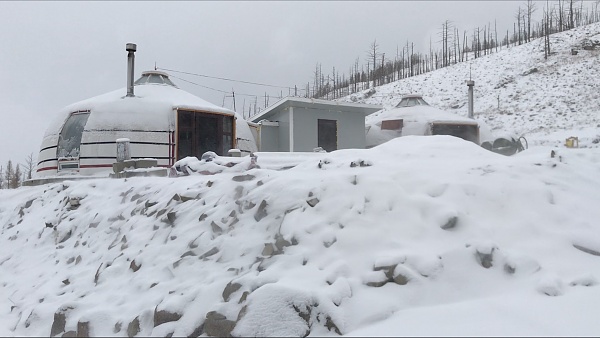
First some history. Traditional yurts ('gers' in Mongolian) aren't well insulated compared to a house. Two or three layers of wool felt is about the most
they have, which really isn't very thick compared to modern
- maybe 3-5cm maximum thickness in total.
Instead, they rely on small size and efficient shape to be comfortable. Mongolians made their winter gers very small and low for maximum efficiency. A wood stove in the middle heats outwards from the center and the family sleeps in single beds arranged around the wall.
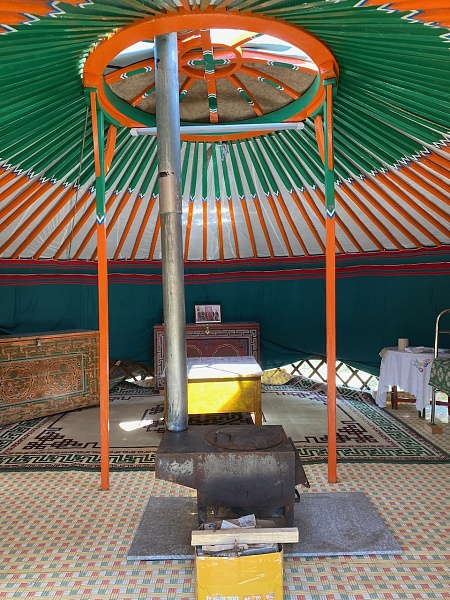
Again, these gers are not big or tall. Probably just 6m max diameter, 1.5m high outer walls, 2m tall in the middle. We have 2 of them. The doors and outer walls are low to keep the internal volume small. However, due to the small volume and arrangement of the stove, Mongolians have survived through -40C/F winters for eons. Just burning wood and/or dung. More recently smokeless coal briquettes. Electricity could maybe keep them warm with space heaters but it could be costly compared to other methods.
So, now let's talk about modern gers. We have 2 of them also. They are bigger (ours are 7.2m diameter) and taller (2m at the walls and 3.5m in the center). We have windows and glass doors in our modern gers. With only about 5cm of wool felt insulation, we need to generate a lot of heat to keep them warm through the Mongolian winter.
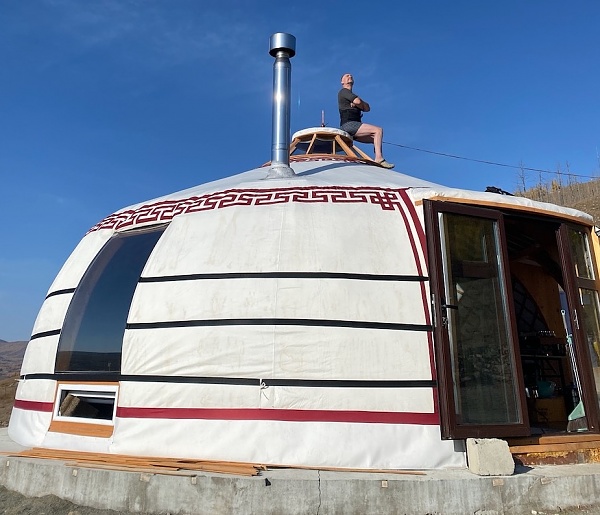
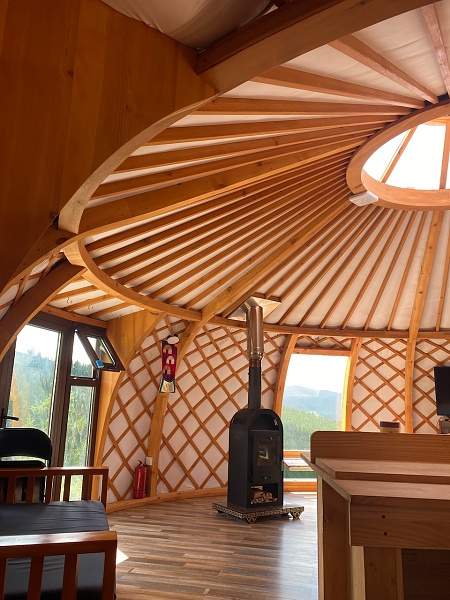
We have multiple
methods for our modern gers. I'll list them with their pros and cons.
Underfloor electric heating. Pretty nice feeling to have warm floors but won't generate enough heat alone in deepest winter. It's slow to warm and a gentle kind of heat, widely dispersed across most of the floor. Also, it's invisible so it doesn't change the look of the ger. We have cheap or even free electricity so it doesn't cost what it would in the UK.
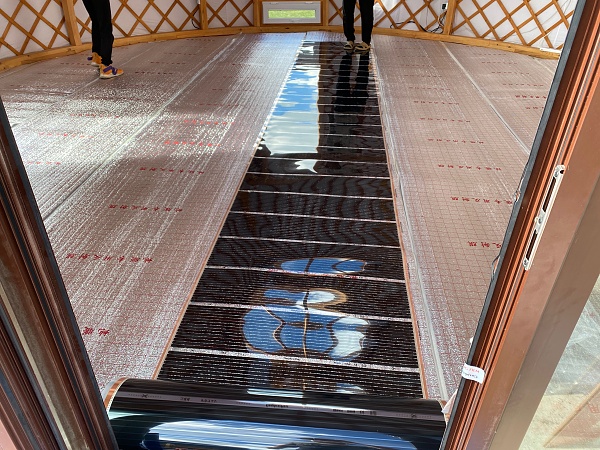
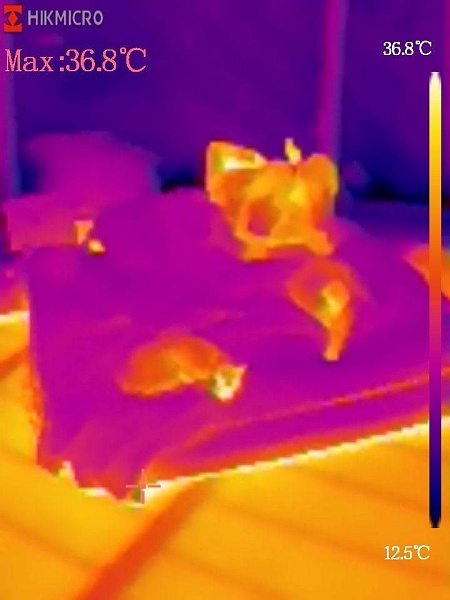
Coal/electric hybrid boiler and radiators. This has the benefit of using smokeless coal (coal briquettes) and/or electricity. Again it's struggling to keep up because the maximum is 95C for the system and we only have 1 large radiator in each 7.2m (40m/2) ger.
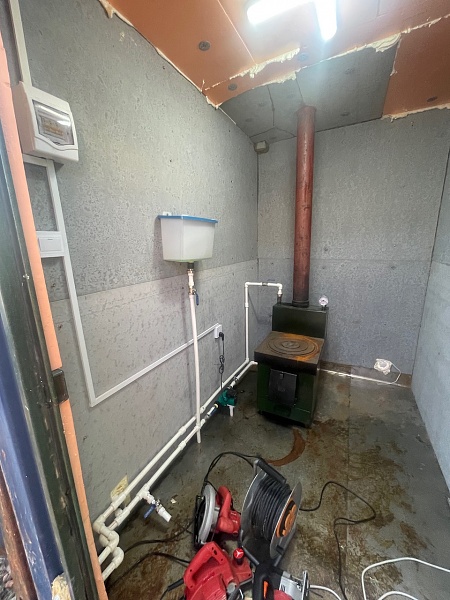
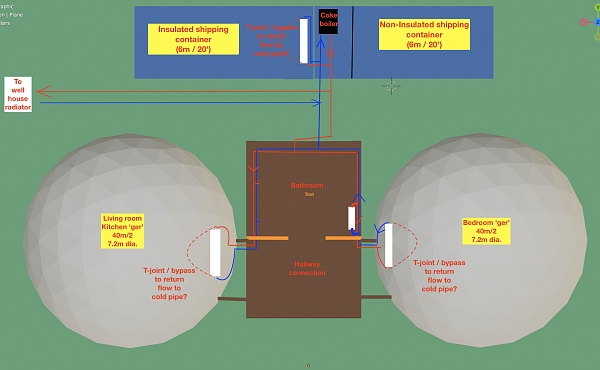
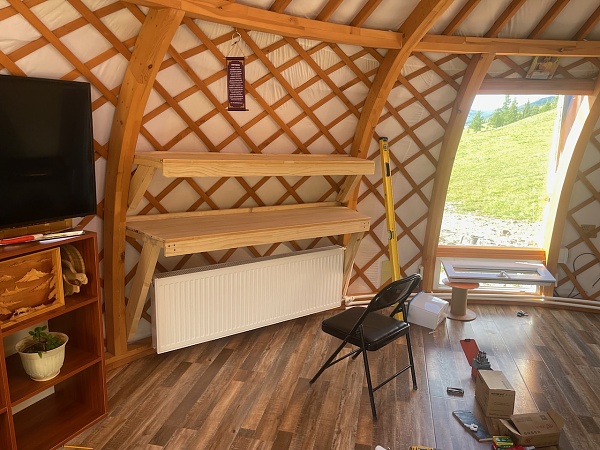
Wood stoves. I love them. Very romantic and nice ambience. Each of our modern gers has a modern wood stove. This creates massive, fast, radiant and conductive heat but needs almost constant attention. They aren't in the center of the ger because I wanted an open plan with no obstructions in the middle. Fast, glorious heat but no good for all night. In Mongolia, they heat the stove before bed then go to sleep. It'll be cold by the morning but they bundle up. The first up makes a new fire.
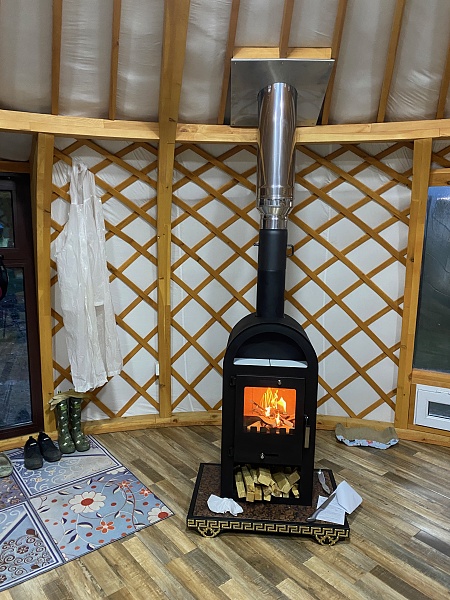
We have other methods as backups. Propane room heater is also fast and hot (radiant) but it generates a lot of water vapour and probably CO and CO2. You need to ventilate very well which sort of defeats the object. Unless you rig up some kind of air intake and exhaust which should be heat exchange type. Tricky in a ger but probably feasible.
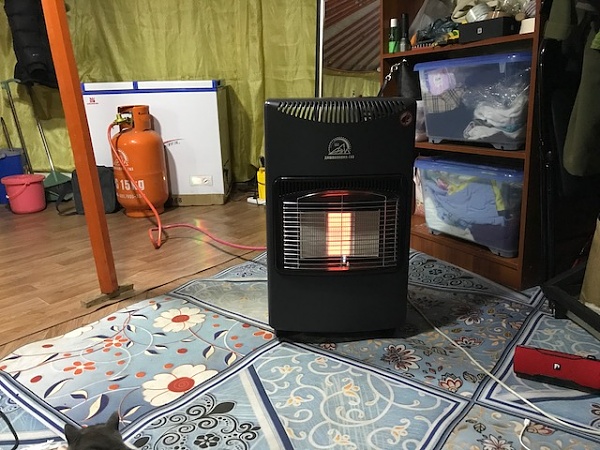
Diesel heaters. Also need air intake and exhaust. Quite good heat with a blower fan but a bit noisy. Can be run on vegetable oils, if prepared correctly. If the wind is blowing the wrong way, it's unpleasant. My wife objected to the smell so this is only used in an absolute emergency. Also it needs electricity to run but can be a 12v battery and inverter, if I remember correctly.
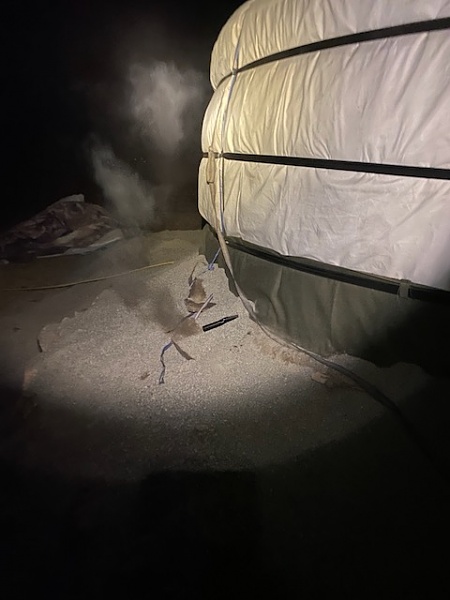
I think the wood stove is a good choice for simplicity and off-grid suitability. Just be prepared to be cold in the morning. Lots of bedding helps. If you can get an efficient coal/semi-coke burning stove, you can get an all night burn but it depends on availability. Anthracite is great if you can get it. Smokeless coke is good too.
In Mongolia, the absolute cheapest way of heating is now smokeless coke briquettes. And can certainly be off-grid. The simplicity of solid fuels is an advantage but there's quite a bit of maintenance involved: starting fires, cleaning fires, ash disposal etc.
Please reply because I'm curious what you decide.

